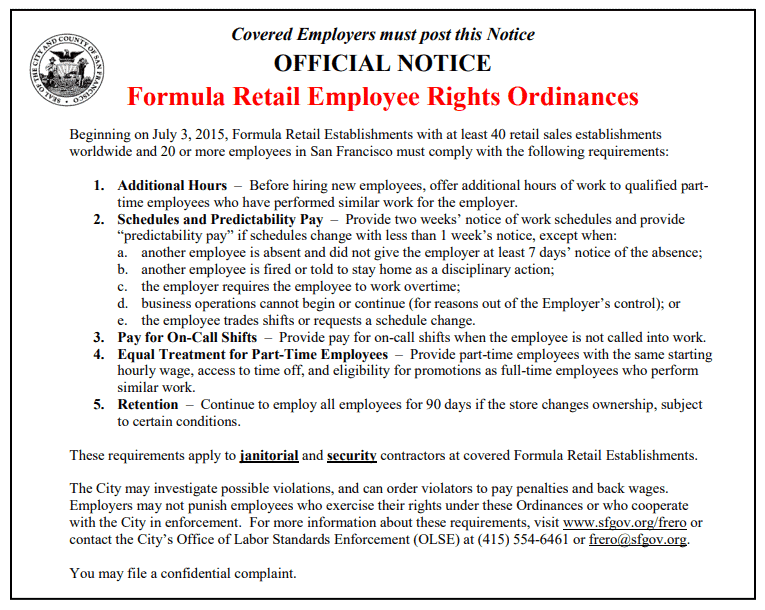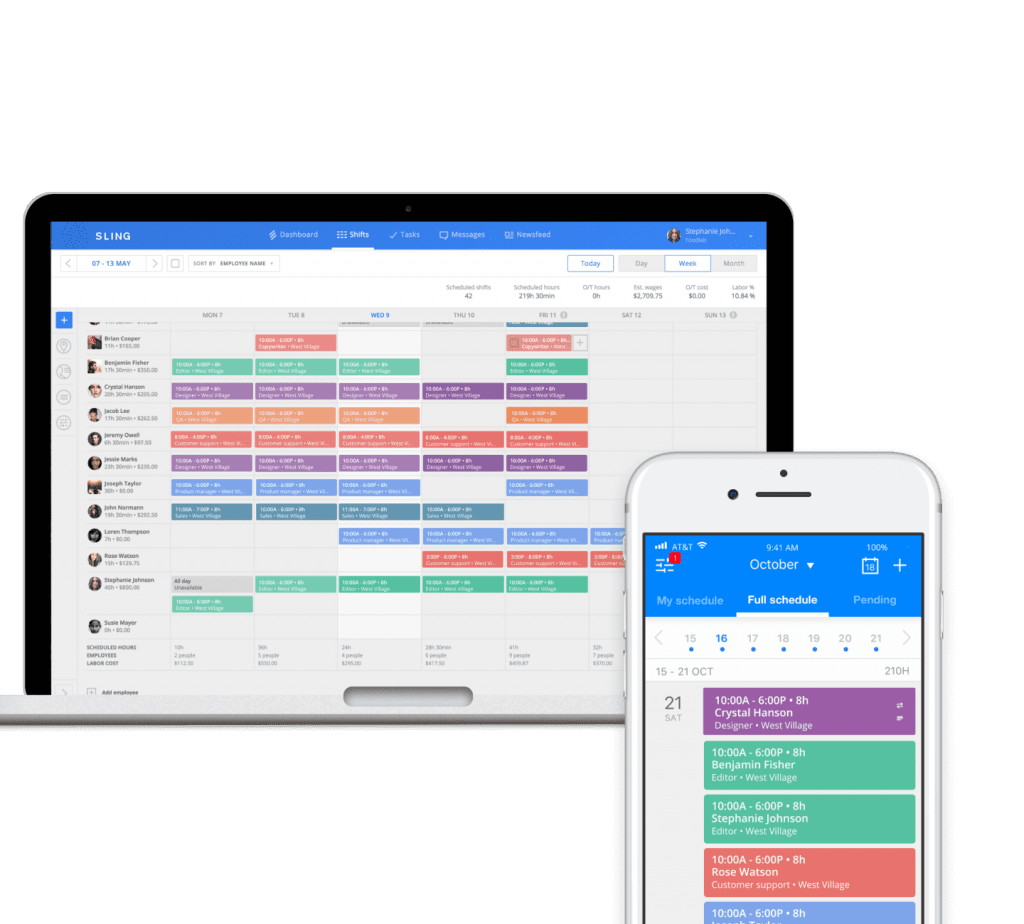Labor Laws for Breaks: What Employers Need to Know
Labor laws for breaks can be complicated and confusing. Learn everything you ne...

Fair workweek laws may be coming to your city or state very soon. Is your business ready to comply? Failure to do so could lead to hefty fines and even legal action.
At the very least, fair workweek laws will have a significant impact on how your business operates, particularly when it comes to scheduling and when your employees work.
In this article, the management experts at Sling discuss everything you need to know about these laws and reveal the best way to prepare your business for the changes to come.

Fair workweek laws go by many names, including:
Regardless of what they’re called in your area, the heart of these laws remains the same. At their most basic, fair workweek laws are designed to protect employees from unfair and extremely inconvenient labor practices.
In most areas, they require that food, retail, and other establishments provide such accommodations as predictable work schedules, advanced distribution of finalized work calendars, and even additional compensation for certain shifts.
How exactly would these laws affect your business?
Let’s take a look at San Francisco’s Formula Retail Employee Rights Ordinances — the first fair workweek laws in the United States — for more details.

Source: sfgov.org
Right away, you’ll notice that these ordinances apply to businesses with at least 40 retail sales establishments worldwide and businesses with 20 or more employees.
Dig further into the law and you’ll find that this applies to bars, restaurants, liquor stores, sales and service providers, hospitality providers, banks and financial institutions, and take-out food shops. So a large number of businesses are affected.
Most notably, numbers two and three of this law stipulate that applicable San Francisco businesses must:
Those two provisions (as well as others) may be significantly different from the way your business operates currently and might require drastic changes in order to remain compliant.

Employees in many of the industries mentioned in the previous section — including retail workers, baristas, caterers, servers, and food runners — were subject to unpredictable scheduling practices that made it nearly impossible to plan their lives and their income.
What’s more, the on-demand-with-short-notice attitude of many business owners and managers made finding last-minute childcare and transportation an extra burden on these employees.
Fair workweek laws make those practices illegal and introduce stability and predictability into the lives of thousands.
Many fair workweek laws also address other unfair labor practices, including:
It’s this type of “scheduling malpractice” that makes fair workweek guidelines necessary in this day and age.

Fair workweek laws vary from city to city and state to state.
To find out if your business is affected, visit your city government’s or Secretary of State’s website for more details. When doing so, it’s essential to understand that the laws may come from your city or your state.
For example, the following cities have fairness ordinances on the books, while the states in which they are located do not:
On the other side of the coin, these states have enacted fairness ordinances that apply to all business therein:
And, finally, these states have fair workweek laws pending discussion and approval in their respective legislatures:
Keep up to date on local and state developments to ensure that your business remains compliant.

At first glance, it may seem like fair workweek laws only benefit employees. But when businesses implement these types of policies, they inevitably find that they’re getting just as many benefits as their employees.
That said, there are a few drawbacks to fair workweek laws that you should be aware of. Here are the pros and cons for businesses large and small.
The nice thing about many of these cons is that you can all but eliminate the drawbacks of fair workweek laws while still enjoying the benefits.
All it takes is a little effort and the right software.

If your business is subject to fair workweek laws — or even if it may be subject to them in the near future — you need the right software to simplify compliance.
You need Sling.
Sling is a powerful software suite that gives you all the tools you need to ensure that your business is observing any and every fair workweek law in your area.
Sling is even the perfect scheduling solution for businesses that don’t yet have these laws to contend with.
With Sling, you can create complicated team schedules — including rotating shifts, overlapping shifts, and night shifts — in minutes instead of hours and distribute the schedule to your employees with just the click of a button.
In addition, Sling allows you to calculate staffing requirements well in advance so you can give your employees ample notice as to when they will work.
Sling even provides an onboard artificial intelligence that alerts you to conflicts in the schedule (e.g., overtime, double bookings, and time-off requests) so you can finalize your schedule sooner.
And that’s just the beginning of how Sling can help you run your business better, whether it’s subject to fair workweek laws or not.
Sling’s advanced features include:
All of those features — and much more — make Sling the easiest and best way to comply with fair workweek laws in your area.
Sling truly is the best way to prepare your business for new labor laws coming down the pipe or to protect your business from fines and legal action if those laws are already in effect.
For more free resources to help you manage your business better, organize and schedule your team, and track and calculate labor costs, visit GetSling.com today.
See Here For Last Updated Dates: Link
This content is for informational purposes and is not intended as legal, tax, HR, or any other professional advice. Please contact an attorney or other professional for specific advice.
Schedule faster, communicate better, get things done.